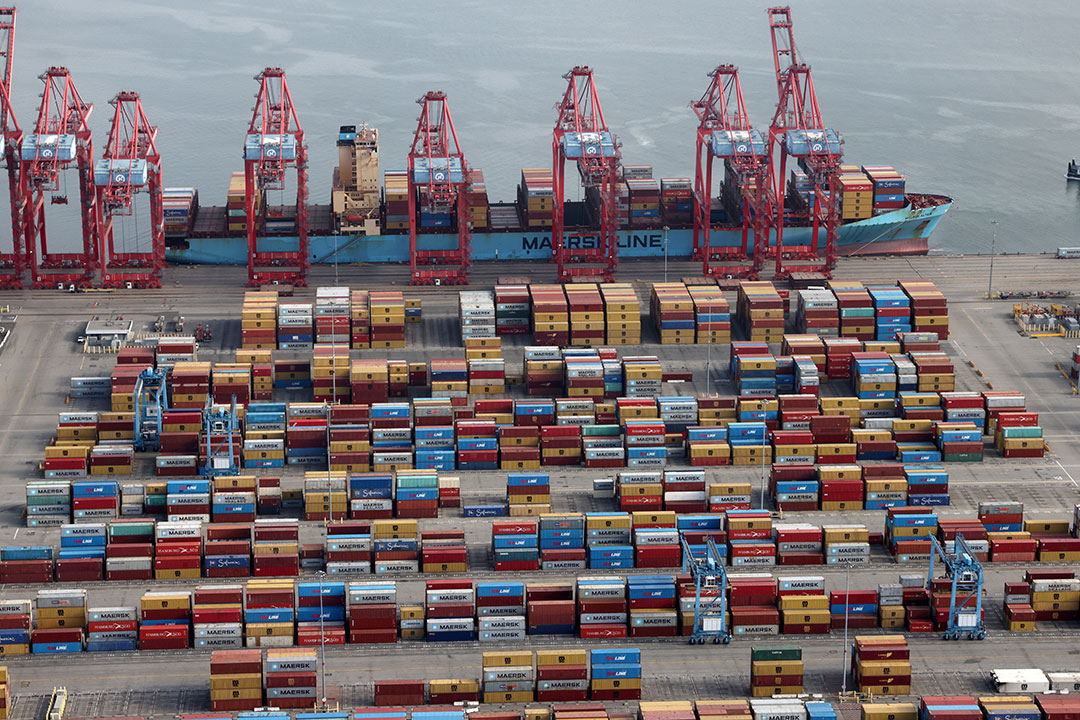World trade rebound expected to be subdued, services to outperform

INTERNATIONAL TRADE is expected to rebound by around 2% this year, underperforming the projected growth of global gross domestic product (GDP), the United Nations Conference on Trade and Development (UNCTAD) said.
In a briefing late Tuesday, UNCTAD Secretary General Rebeca Grynspan said that trade is no longer “the engine of growth that it was before.”
“Since 2008, this has been the case, and now (trade) growth, because of geopolitics and rising protectionism, is even weaker,” Ms. Grynspan said.
“Trade as a share of GDP reached 16% in 2008 but has stagnated since then. Geopolitical tensions, as I said, protectionism on the rise and policy uncertainty are dampening hopes for a strong trade revival,” she added.
She said that although trade is expected to continue growing at around 2%, it will grow below the rate posted by global GDP. In the Trade and Development Report released by UNCTAD last night, global GDP is expected to grow 2.7% for 2024 and 2025.
“After stagnating in 2023, international trade in goods and services is expected to rebound by 2-3% in real terms in 2024,” according to the report.
“Merchandise trade, which contracted 1.2% in real terms in 2023, was the main cause for the poor performance of the broad aggregate in 2023,” it added.
In contrast to this, trade in services grew 5% in real terms last year and is expected to grow more, Ms. Grynspan said.
“Services alone now make up to nearly 25% of global trade and are projected to grow further. Global trade is growing at around 2% per year, and services are growing at around 5% per year, so we can expect the share of services in global trade to continue rising,” she added.
In the Philippines, the Development Budget Coordination Committee (DBCC) projected exports of goods to grow 5% this year and 6% next year, with merchandise imports growing 2% in 2024 and 5% in 2025.
In April 2023, the DBCC said that service exports and imports are expected to grow 16% and 10% this year and 6-8% between 2025 and 2028.
The Philippine Statistics Authority reported that total external trade in goods was $133.11 billion in the first eight months, up 0.5% from a year earlier.
Exports were valued at $49.41 billion (up 2.3%), while imports amounted to $83.7 billion (down 0.5%).
Meanwhile, the Bangko Sentral ng Pilipinas reported that exports of services totaled $24.9 billion (up 11.4%) in the first half, while imports amounted to $17.7 billion (up 27.3%).
UNCTAD said it is seeing growth in trade between developing countries.
“South-South trade is growing much faster than global trade … South-South trade has more than doubled to $5.6 trillion by 2023, offering an opportunity for diversification and to reduce dependency on traditional partners, especially in the face of rising protectionism,” Ms. Grynspan said.
“South-South trade, together with the energy transition and the digital economy, are clear opportunities for developing countries to achieve sustainable economic development,” she added.
However, she said that to realize the opportunities, developing countries have to avoid commodity dependence.
“If we will stay only in the extractive industries, despite the fact that most of the reserves for the critical minerals needed for digital and for the digital and energy transition are in the developing countries, if we don’t take advantage of diversification and add value, we will continue in the vicious cycle of commodity dependency,” she added. — Justine Irish D. Tabile



